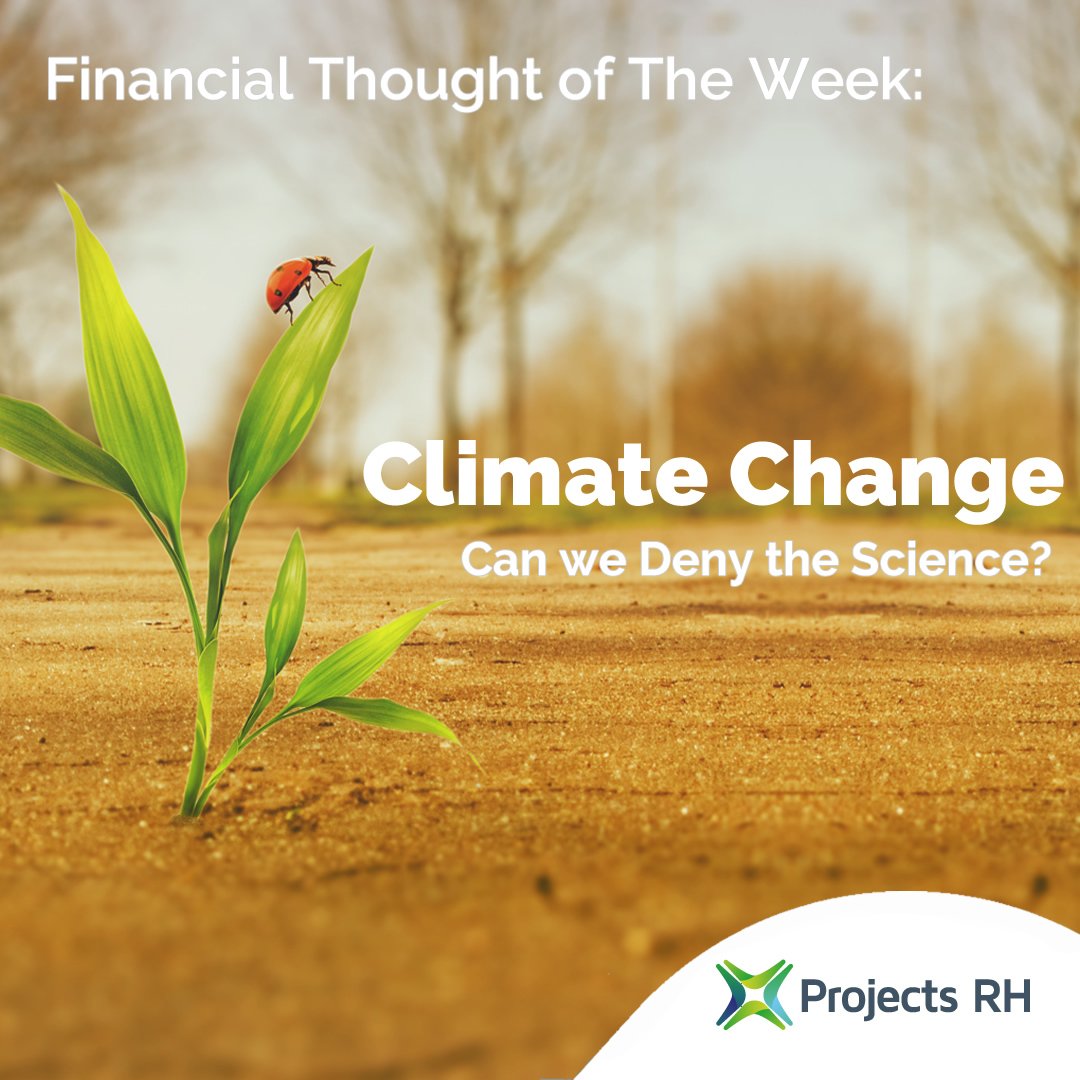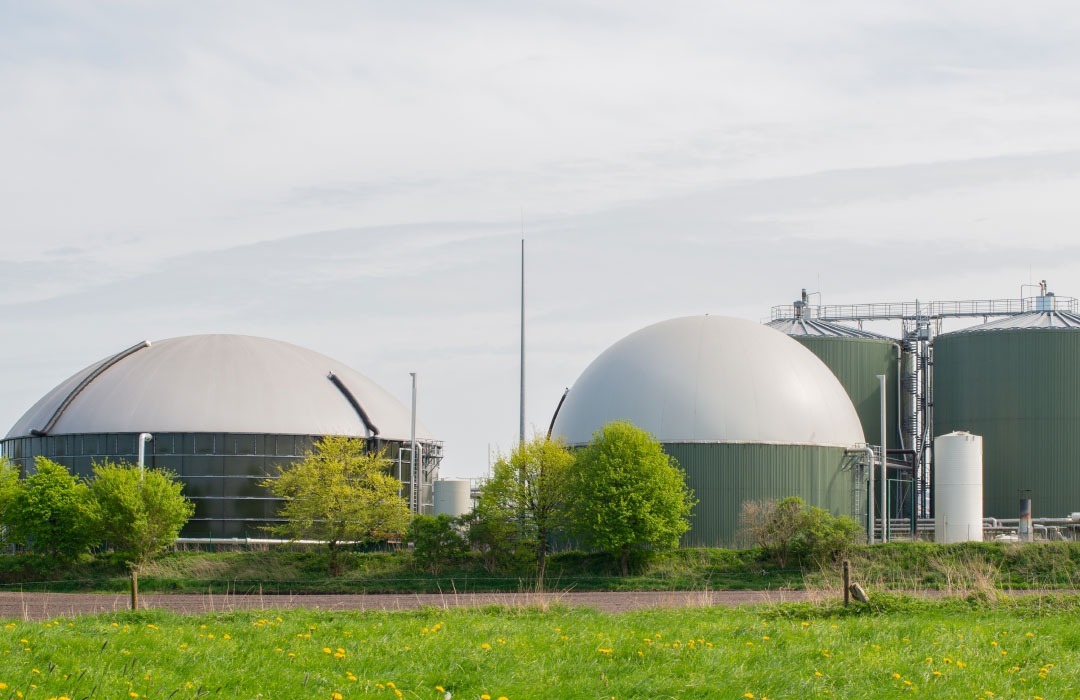We Cannot Deny the Science?
Projects RH has made a major investment of time and resources in developing its business in carbon credit creation, generation, registration and sales in addition to our work in corporate finance with focus on renewable energy. Much of this work is based on new regulator and reporting requirements which have been mandated by nations to meet national and global pressures to reduce global warming. The language has been at best emotive and based, we are told, on science. What this science is reported as saying it provides undeniable truth that we have global warming, and this is caused by us, humankind. Anyone who challenges the science is seen as a Luddite with their critics playing the man and not the ball.
The yelling has been of “science deniers” and “Luddites”; we are not expecting to hear any apologies.
The response is science has led to a rapid change in the economic direction of the world and a massive reallocation of dollars into more environmentally friendly energy and other projects. Many of these projects were at higher unit costs than would have otherwise been required and our energy users and consumers will pay the cost of this for decades to come.
Introduction
As long has been suspected the longitudinal studies of climate and weather have been again shown to prove that the climate experiences we are having today are natural and do not represent an extreme series of man-made events rather the normal cycle of climate and weather which occurs throughout the planet over many thousands of years.
Given that we no longer have a climate emergency what impact will this hard science have. Frankly, at Projects RH we believe very little. Over the last 20 years, and in particularly the last decade, our legislative and financial environment have changed fundamentally in favour of the Greening of the economy and the reporting of those who emit CO2. We live in a world where Gretta Thunberg, a Swedish activist and school student is better known than Marcel Dinger who was last month appointed as Dean of the Faculty of Science at The University of Sydney, and is a highly regarded genome biologist and entrepreneur.
What may happen is that the constant reference to unusual or extreme by journalists and commentators may become more moderate, but we think not.
What Next
The brave scientists from Italy’s National Institute for Nuclear Physics and the University Milan will be criticized for not having the right basis for their studies and coming out with the right results.
What the Italians have found is that natural disasters including storms and droughts form part of the normal global environmental cycle and their evidence exists for this to be the case over many millions of years.
The statistical analysis undertaken has been able to have access to geological cores taken from around the world including the polls which show stained changes in our planet what they did find is that there are cycles in precipitation and heat which leads to floods and long dry spells but there is no evidence over the long run that we are seeing anything unusual.
The study however does not conclude that we should not be doing anything about our environment. It is clear that community expectations have changed dramatically and that is self-evident that over the last 200 years at least man has made massive changes to the planet as we know it. Results of the acid rain storms and soil changes in Germany are clearly byproducts of the industrialisation of modern Germany. The black haze which covers much of Beijing in winter is clearly not natural and does come from the existing coal-fired power stations which historically kept the city warm.
As an econometrician one of the most important things I learned was that one needed to ask the right question. In the 21st century is more a question of what we’re doing now and what we have done in the past. Whilst many scientists would argue, and probably correctly, is a cumulative effect, economists would argue that the so-called prosperity of about 20% of the world’s population is the clear is the key to our clear and present danger.
One of the important things that the human race needs to understand is that emissions really stay within one country and have no respect for national borders. As such therefore world must unite to put into place codes of conduct which we can live with in both the short and long terms.
New Brooms
The political cries of fire and imminent danger have led to rapid international action to monitor and encourage ethical behaviour not only amongst nations but by large organisations including corporations. It is doubtful that without the fear of imminent danger we would ever to have seen such a rapid transition in the regulatory environment that causes each day for the team at Projects RH to look at the price of carbon credits before they look at the price of oil and exchange rates.
Today our business focuses more on renewable energy, preservation in carbon credits. I am often asked why and the answer lies in the fact that is good business. We now have in place mechanisms which reward us for good behaviour and punishes when we don’t comply with social norms.
Many of these punishments are not immediately financial but damage to reputation and the refusal of banks to lend you because you’re in a particular business makes it clear that corporate behaviour and that of governments needs to reflect community expectations. Large organisations to divest businesses such as gambling and alcohol because they think it is prejudicial to the success of their larger unit business units stop today, equally, large resources houses see the future lies less in fossil fuels than in the minerals to allow the storage of energy.
Living in an Orwellian world
John Orwell would not be at all surprised if you were to read today how we endeavour moving towards a cleaner in green world. At Projects RH we believe that this was a work already occurring and that media hype and political expectations facilitated use change in community expectations. Globally we are seeing the rise of “green” vertical movements and particularly urban people worried about the greater environment across the country.
At Projects RH we see much more political discussion about energy and people planning and financing to achieve a more sustainable business model. Whilst we do see many companies wanting carbon credits and working with organisations such as the Carbon Institute the measure and hopefully reduce their carbon footprint is now a matter of corporate urgency.
We work with many of our clients at Projects RH to ensure that they can comply with the requirements of reporting and accounting standards. Many want to meet the expectations not only of their clients but of their staff and they now know they need not only talk and act. It is a commercial reality that the purchasing of carbon credits in many industries is no longer an option. In many senses our governments are being driven by the populous and they are now behind community expectations. This is democracy!
Conclusion
As someone who practiced his craft in the energy business for 20 years after graduation I am not sure that today it offers the same attraction and social status as it did then. Do see that the silent majority around the world are happy with the “Greening” of our commercial landscape and they are comfortable with our discussions about carbon credits and offsets and importantly will pay more money for quality goods they believe come from sustainable environments.
It is now too late for those who seek to win the argument that the that the climate change deniers were correct. We have now rebuilt the direction of our businesses towards creating a healthier international and domestic environment. The tools, subsidies and taxes are in place which will see our economy’s pivot with some productivity loss quickly to an environmentally friendly and sustainable model. Markets and investors has added a new criteria for management and company to be scored against.
With the dam gates open and business plans calling for net zero emissions by 2050 on a global basis, the science really matters little, as the people and the economy will make the Greening of the earth a self-fulfilling prophecy. At Projects RH we know we need to be part of this, it makes good business sense and frankly people feel they are making a contribution not just of the company, but to their families and to their world.
By Paul Raftery
CEO, Projects RH, based in Sydney
Source : Lloyd, G.; “No ‘emergency’ shown in climate records”, The Weekend Australian, September 17-18, 2022, p. 2




